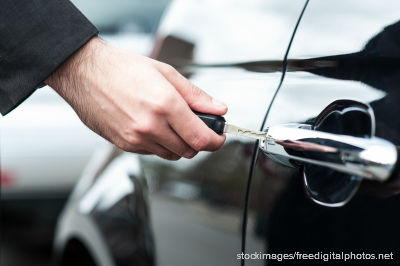
Whether you are planning a road trip for a vacation or a
long distance move, expenses along the way can put a big dent in your wallet. If you are already weighed down with moving costs, saving some cash while traveling is a good way to keep your budget in check.
Bring food along
Eating out, while enjoyable, is extremely over-priced. While stopping to dine at various eateries on the road--or even at a quick fast food drive-through--may seem convenient, it will add many unnecessary dollars to your travel budget. Bringing plenty of your own meals and snacks to enjoy on the road will save you a lot of money--and time. If you're moving, this will also help you eliminate all that perishable food in your fridge that would otherwise go in the trash. Make sandwiches or wraps for easy-to-eat fare in the car, and pack granola bars, pretzels or other dry snacks for between meals. If you will be on the road several days, pack a small cooler to keep perishable food chilled.
Book hotels in advance
Stopping at random hotels spontaneously along the way will cost you more than booking in advance. Map out your route and plan a driving schedule to determine your expected locations when you will want to stop for the night. Search travel sites like Booking.com and Expedia to find deals on cheap inns and motels in those areas and make your reservations ahead of time. These sites often offer coupon codes to receive discounts on rooms.
Conserve fuel
One of the biggest expenses when traveling long distance is fuel. Depending on where you're traveling, gas prices can be pretty astronomical, so to
keep fuel costs down follow these tips to conserve:
- Slow down. Every mile you go over 60 mph you pay an extra $0.10 a gallon for gas, according to Planet Green. Avoid speeding to prevent excessive fuel usage.
- Keep a steady speed. Constant braking and acceleration burns excess gas as well. Use cruise control to maintain a steady speed on major highways without traffic lights or stops.
- A/C vs. windows down. While both are said to use up your fuel, which is worse? Having your windows open creates a drag causing your car to work harder, but the A/C uses extra power. Basically, popular opinion states that if you're traveling at speeds over 60 mph, you should use the A/C, but speeds of 45 to 50 mph leave your windows down.
- Don't overload the car. If you're moving--or even just going on vacation--you may want to load your vehicle with luggage and/or boxes. However, the more weight in your vehicle, the more gas you will burn. Try not to pack the car with unnecessary items to conserve fuel and save money.
- Avoid idling. Excessive idling can waste between a quarter to a half gallon of fuel per hour, depending on the size of your engine. Always remember to turn off the your car when you are parked or making stops.
Avoid toll roads
Toll fees can add up to a significant expense during a road trip. Some highways and bridges cost several dollars to enter, and if you're traveling long distance, these costs can add up. Use mapping websites like Mapquest, smartphone apps like Google Maps, or your GPS system to target routes that use toll-free roads. Be sure to determine if the distance difference is significant--you don't want to add too many unnecessary miles to your trip that will just cost you more in gas.
Choose affordable sight-seeing activities
Want to stop and explore along the way? Long car trips can be boring, so getting out of the car to stretch your legs and check out sights is always a good way to break up the monotony. Before your trip, do a little research to find economical recreation along your route.
- Beach. Free in most places, a walk along the beach and a picnic is a relaxing way to get some fresh air, food and exercise.
- Museums. While some museums charge an entrance fee, they often have free admission on certain days. Other smaller museums may charge nothing at all, or ask for a donation of your choice.
- Landmarks. Are there any historical or natural landmarks or sites along the way? Explore a mountain trail, state park, or historic village for a free or low-cost adventure.